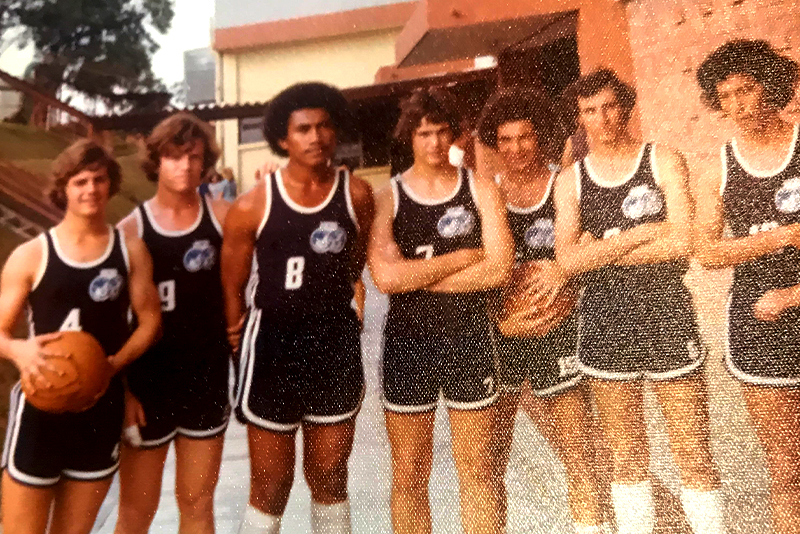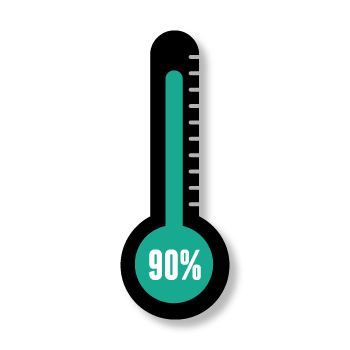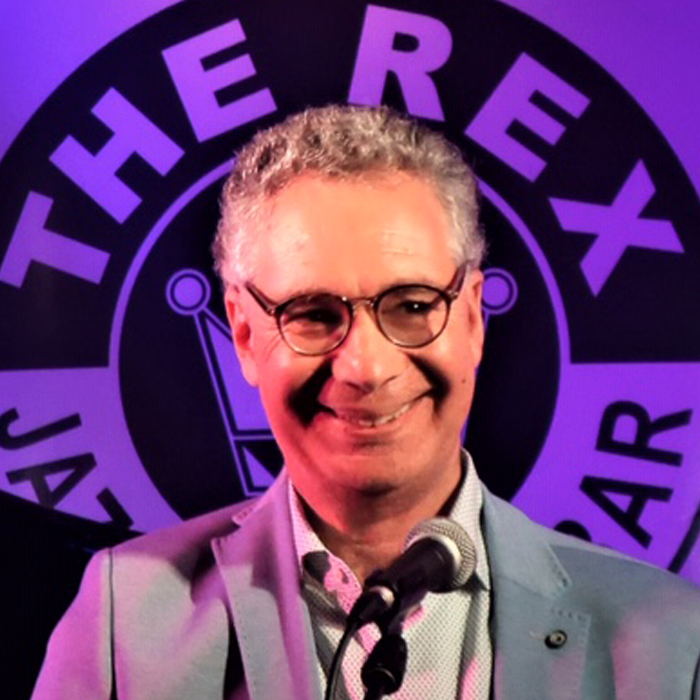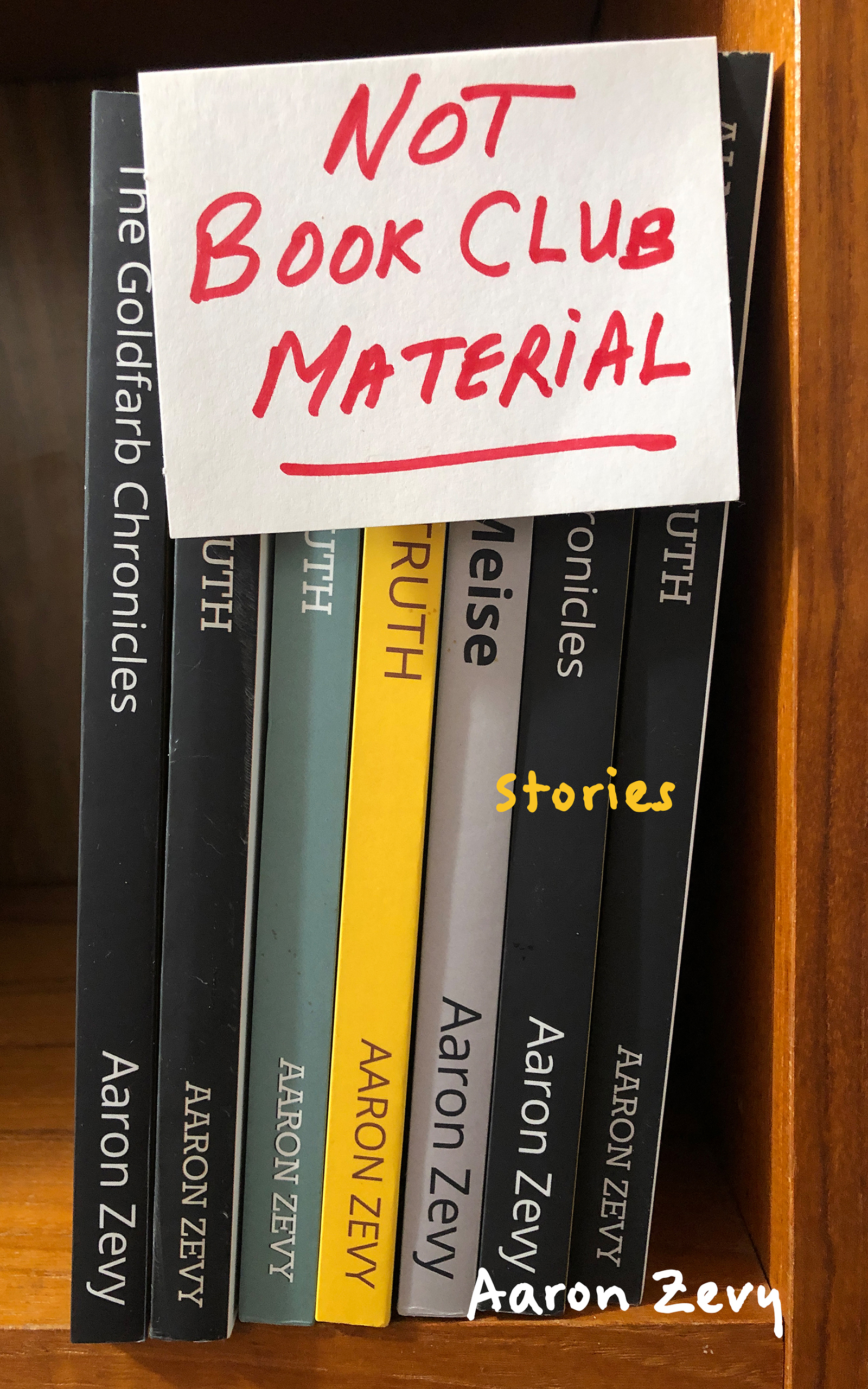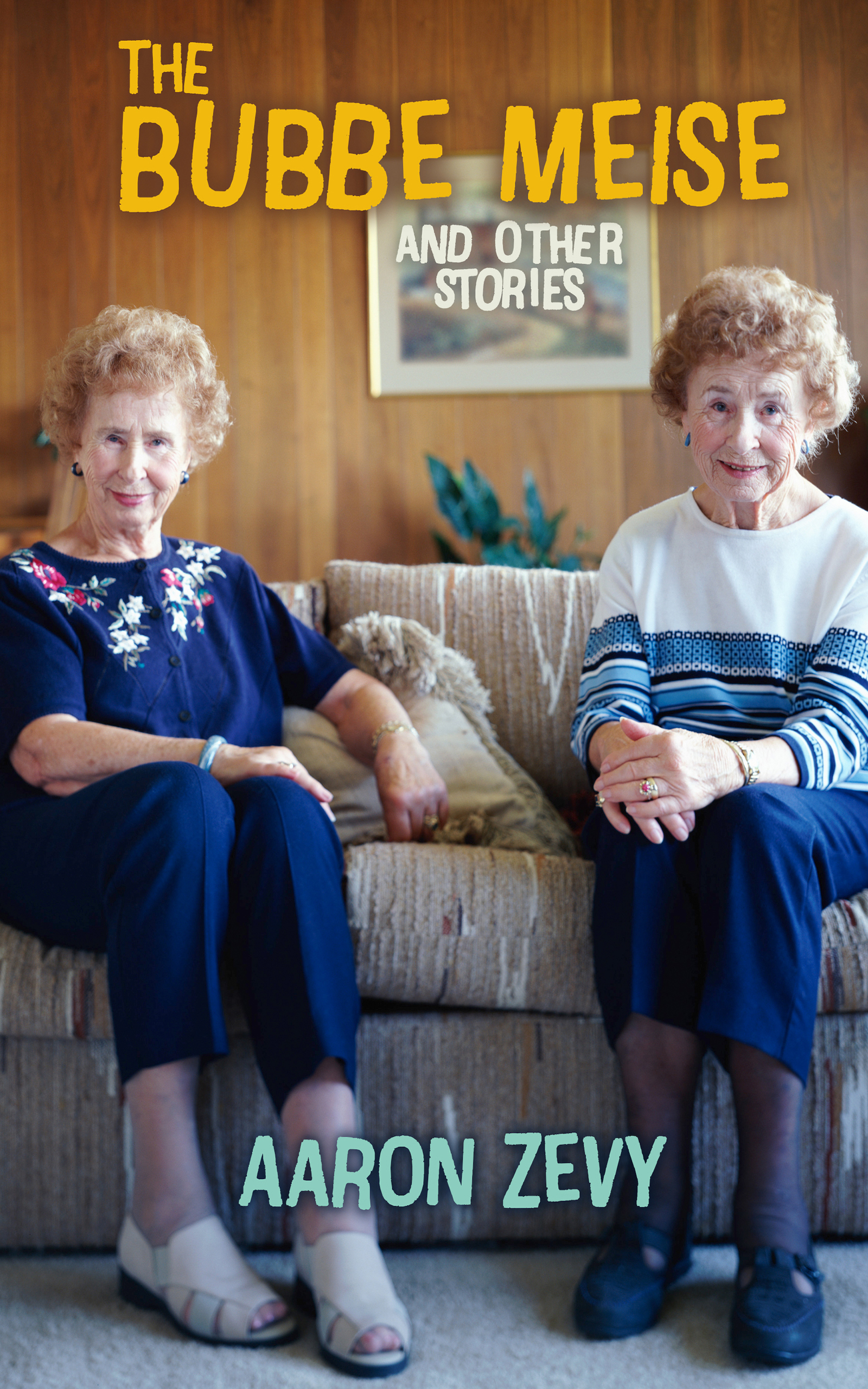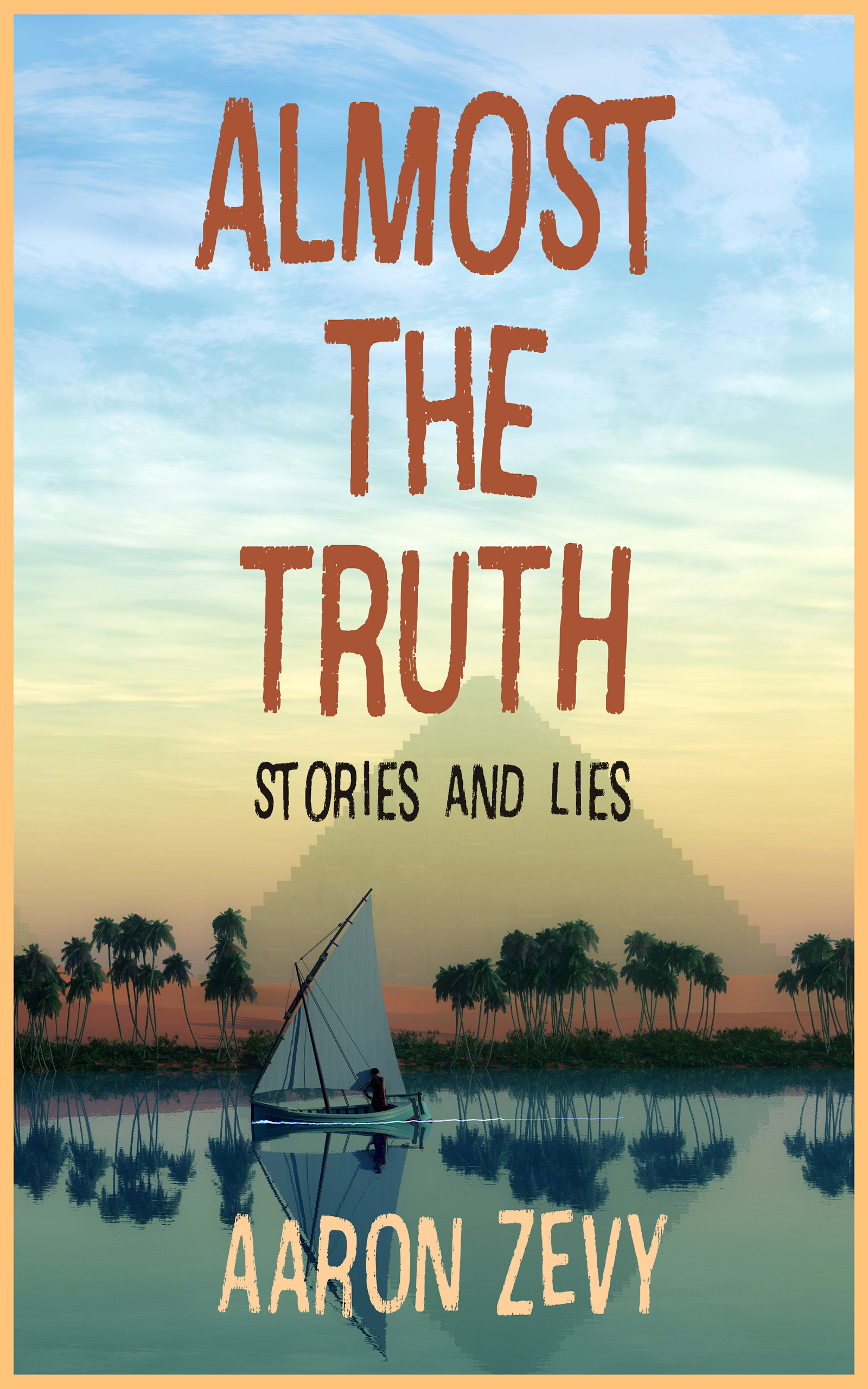My friend Harold Rosen has a son called Jacob. He is a good kid. You should have seen the face he made when I told him I was once the star of my high school basketball team.
I wish I could say it was a look of surprise.
It wasn’t.
I wish I could say he was incredulous.
But I can’t.
His expression did not rise to the level of incredulity.
To be clear:
I wasn’t saying I had played in the NBA with Kareem Abdul Jabbar.
I wasn’t saying I had once beaten Michael Jordan in a game of one-on-one.
I only said I was once the star of my high school basketball team.
High school.
Jacob could not conceive of me ever being young. Let alone the notion I had once donned a pair of high tops and flew through the air to delicately deliver the ball into the basket with my patent finger roll.
But I was.
And I did.
I played on my high school basketball team, Ridgemont High School in Ottawa, Canada, in Grade 10 and 11. That is not where I was a high school basketball star.
I can imagine my friend Steve Koobs Kahansky reading this part. He has started smiling to himself because he knows what is coming up. His wife, Karen, asks what is so funny. He will say something he just read. But he means something he is about to read. But he doesn’t even have to read it. He knows I can’t write about playing basketball at Ridgemont without telling the story about the time I scored on my own basket.
In Grade 10, I made the basketball team by the skin of my teeth. I was the eleventh guy on a 10-person squad. The coach, Coach Keene, liked me. “Zeevy,” he would say, “I like your hustle.” Not enough to get me in the game. But he liked my hustle.
The second-stringers played when we were up by 40 points or down by 40 points. And we were never up by 40 points. I played, well, let’s just say waiting for the Messiah is more hopeful.
One game, we were playing against our arch-rivals, Canterbury High School. Our family actually lived on Canterbury Street and the school was very close by. But my parents chose Ridgemont because they heard it had another Jew.
I wish I was joking.
It was a home game and the stands were full because there was going to be a sock hop after the game.
A sock hop.
Again, I wish I was joking.
I called Canterbury our arch-rival but that kind of implies that we won the occasional game.
We didn’t.
Ever.
When we played in their gym, they would come out of the locker room to the sound of a song called Basketball Jones.
Many of the stories I tell I remember only in the telling. But I remember Basketball Jones as if it were yesterday.
It was by Cheech and Chong.
How Canterbury High School allowed the theme song to come from that famed, pot-smoking, Dave’s Not Here duo, I’ll never know. But the song came on, blasting, the Canterbury team would come strutting out, and we never had a chance.
Tonight’s game however, was at our gym. We wouldn’t have to deal with a song, only the vastly superior Canterbury basketball players.
It wasn’t long before we were down by 40. Our 10-strong team took turns being sacrificial lambs. And then, out of the blue, the Coach calls out, “Zeevy, get in there.”
Am not sure if any of you played a sport in high school. Am not sure any of you were a never-used, fourth-string scrub who never played. If not, let me explain: when you are a never-used, fourth-string scrub, your mind has a tendency to wander. A cute girl in the stands. Cheech and Chong. World peace.
And so I got in the game without having as complete a picture of the situation as I might have had were I not contemplating world peace. So when our center miraculously won the tip on the far side of the court and nudged it into my surprised and willing hands, I proceeded to deftly dribble through and around two or three helpless and befuddled Canterbury players all the way to the basket on the other side of the court, where I gently laid it into the basket using the aforementioned finger roll.
The only thing:
It was into my own basket.
Sitting on the bench, you see, I neglected to notice which way we were going.
And so, I scored into my own basket.
In front of what looked to be the entire school.
Earning myself the moniker, one which stayed with me for the rest of the year of Wrong-Way Zevy.
In Grade 11, I got to play more. We didn’t beat Canterbury. I’m not sure we beat anyone. But I got to play. And I got better. And I became a bit of a basketball fanatic. We had two practices a day, and I even used to listen to the college games on shortwave radio.
On the radio.
Like I said, I was a bit of a fanatic.
So by the time my father called a family meeting, spread out a map of the world and pointed to a spot in Southeast Asia—the city state of Singapore—where we would be spending the next two years—I was pretty into basketball.
I would be spending my last two years of high school at the United World College of South East Asia. It was an international school with a mix of rich, local Chinese, Indonesian, and Malaysian students, plus expatriates from around the world.
It was an international school, but it was English in tone and demeanor. There was a school uniform and we would be studying for English A-levels. The two big sports were soccer and rugby. In both, our school were local powerhouses.
On week one I discovered, much to my chagrin and dismay, that there was no school basketball team.
The head of sport was Mr. Steele. I went to see him. He gave me the once-over. He did not like what he saw. He was especially not a fan of my afro.
“I’m afraid we don’t offer a school basketball team, Mr. Zevy.” He couldn’t wait to get me out of his office. But at least he pronounced my name correctly.
“Can I ask you why not?” I don’t have a clear picture of myself as a 16 year old, but I have no trouble hearing the words of my argumentative 16-year-old niece, Rena.
“Mr. Zevy. Our school plays football and rugby. This is an English school.”
It wasn’t.
“Our students don’t play basketball.”
He made basketball sound like leprosy.
“I am sure there are some students who play basketball.”
“Perhaps. But we have no one here on staff who is able, interested, or capable of teaching basketball.”
Again he made basketball sound like an infectious disease.
“I could coach,” I said.
He looked up from his desk for the first time and looked me in the eye. “You?”
Here, in case you were wondering, was a legitimate example of incredulity.
“Yes. I know the University of North Carolina playbook off by heart.”
“The University of North Carolina?”
It looked like he might have a stroke.
“Yes,” I said, “the Tar Heels.”
Although, seems unlikely I said that.
I may have been impudent, but I wasn’t crazy.
“The University of North Carolina?” he said now for the second time.
“Yes. They use a lot of backdoor cuts.”
I’m now just making shit up. There is no way I ever said that.
“You are going to coach?”
“Mr. Steele. I want to play basketball. There must be competition with other schools like there is in soccer and rugby.”
“There is,” he said. “With some of the local schools and the American school.”
“Okay, then. You get us on the schedule and I will get us a team.”
And then he did something really weird and unexpected. He shrugged his shoulders and said, “Okay.”
There were no tryouts for the 1976 UWCSEA basketball team. A basketball team needs five players to compete in a game.
I found six:
Myself
Kevin O’Kane from Canada
Rob Prester from the US
Nim Asukal from Thailand
David Tow from Australia
and Alon Wegner from Israel.
We were fast. We had some good outside shooters.
But we had no height.
We needed a center.
Then one day, during our third practice, Moses Temo walked into the gym. Moses was the six-foot-four star of the rugby team from the Polynesian island of Fiji.
We were doing layup drills. He just stood there for a few minutes while we practiced our layups. Then an errant ball rolled to his feet. He tossed it back using the two-handed rugby motion.
“You play?” I asked.
He shook his head no.
And then he said, “No, but, how hard could it be.”
There you have it.
The UWCSEA basketball team.
We were good.
We started winning games.
We started getting fans.
Parents started coming to games. Not my parents. But parents. Nim Asukal’s dad would come with a Super 8 camera.
Then one day, out of the blue, cheerleaders appeared. With actual girls!
Finally it was time to play the dreaded American School. They were the Canterbury HS of Singapore. They were undefeated. They had three coaches. They had more than two practice balls.
The stands were full.
I started hearing catcalls.
At first I couldn’t make it out but then it became clearer. They were calling me Tumbleweed. Because of my hair.
“Hey, Tumbleweed.”
Followed by a disparaging and anatomically impossible request of my mother.
“Hey, Tumbleweed.”
The name of my publishing company is now Tumbleweed Press.
Anyway, they thought they were insulting me. They had no idea how much better Tumbleweed was than Wrong-Way.
I scored 22 that day. We were outclassed, but we fought tooth and nail. We were down one when Moses got fouled with two seconds to go.
Moses had not made a foul shot all season. He made Shaquille O’Neil look like Rick Barry.
I remember taking my shirt off.
I remember not looking up.
If I had, I would have seen Moses Temo bank two back-to-back free throws off the backboard for a 43-42 win.
Bruce Springsteen sings about Glory Days. It’s just a song.
I tell myself it’s just a song.
But that win against the American School might have been my crowning moment. Maybe not in my life, but certainly in my basketball career.
22 points.
My friend Phil asks if I heard about the reunion. I say I haven’t. He says there is a Facebook page. I tell him I am not on Facebook. I met Phil in Singapore. We were in the same history class. We became best friends. I was best man at his wedding. He says he is going to check it out. I say it is depressing to see how old we have all gotten. But then I get curious and set up a page. I was right. Everyone looks like shit. I must look like shit, too. I have an old photo album and I upload the pictures. Others share pictures. It is honestly a bit surreal. We have jumped from 16 to 60. The irony is there are so many years to fill, but we get caught up in a matter of a few sentences. It is fun, but it is short-lived. What’s the line from the Big Chill? “We knew each other for a short time a long time ago.” Something like that.
Nice to hear from Kevin O’Kane. He is a mining executive in Western Canada. He was a Philadelphia Flyers fan. He loved Bobby Clarke. Has anyone heard from Moses, I ask. Yes, his sister Terry, who dated him in high school is still in contact. I reach out, but I don’t hear back. People are busy I guess. I move from checking for messages six times a day to once a day and then to once a week. It has played itself out. And then I get a message from Nim Asukal. I wish I remembered him better, but I don’t. He was very quiet. He rarely took a shot but played great defence. His glasses would get knocked off his face about five times a game.
The message is short. “Hey Ron, I thought you would enjoy this.” There is an attachment. It is a video clip. It is short and very grainy. It is mostly of Nim. He has his hands raised high, playing man-to-man defence. It kind of looks like a man giving himself up to the authorities. It makes sense. The video was taken by his father after all. But then the ball gets turned over and we are on offence. Someone is dribbling the ball. You can’t see his face. But the afro is unmistakeable. Then the video cuts out for a second and cuts back just in time to see the layup. It is a finger roll.
I watch it again.
Then again.
Then I attach it to an email.
I scan through my contacts until I find it.
Jacob Rosen.
Take that, you punk!
The end.

